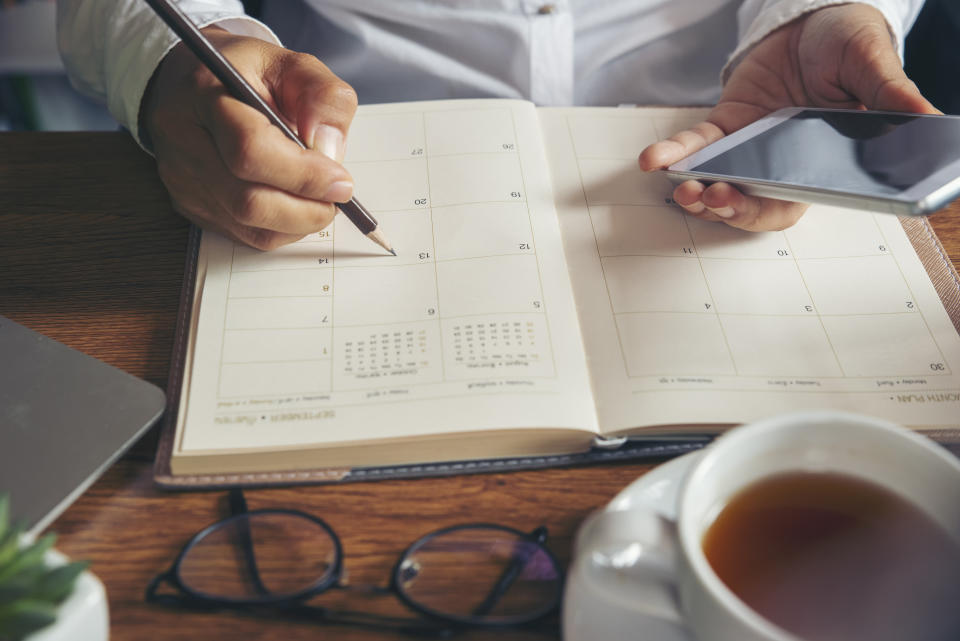The psychology behind why we love routines and schedules

Routines seem boring. When we think of an everyday schedule, most of us picture doing the same thing every day, commuting to the same office and seeing the same people day in and day out — which isn’t most people’s idea of a good time.
Yet having a routine doesn’t mean you have to sit in the same workplace from 8am until 5pm, Monday to Friday. A routine could mean doing a different job every day, travelling to a different country or meeting new people. It’s not about what your routine consists of, but a sequence of actions that you follow regularly with expected outcomes.
We’re all different, of course, but many people thrive on having a routine. Research has also shown that having routines and schedules can have far-reaching psychological benefits.
Routines have the power to improve our sleep, reduce anxiety and boost our cognitive function, and can even have an impact on mental health problems such as depression and bipolar disorder.
READ MORE: Should we be taking microbreaks to get us through the day?
“Human beings are creatures of habit, we find safety in routine and generally do not cope well with uncertainty,” says Emily Cooke, a business psychologist from Thrive: Mental Wellbeing, an app that helps you prevent and manage stress and anxiety.
“Work schedules are important for being able to create distinct boundaries between our work and personal life and enabling us to switch off. Generally speaking, we perceive uncertainty as a risk,” she explains.
“Therefore, having clear schedules can help us to plan our time more effectively, anticipate outcomes and feel in control. It’s worth noting that schedules that are dictated by others will not necessarily have the same effect, and this again comes down to having an element of control.”
For many of us, the COVID-19 outbreak has led to a sudden change to the way we work. We’re working different hours, different jobs and a lot of people working from home for the first time, while caring for children and relatives. This means our usual routines have been upended and we’ve had to quickly get used to new day-to-day schedules. Particularly for parents, having a routine makes things a little easier.
“A large body of research exists which supports the role of control and resources as protective factors to mental wellbeing in the workplace. In other words, if we feel we have control over the work we do — and how we do it — as well as the resources to meet the demands of our work, we will be less likely to become affected by work-related stress,” Cooke says.
“It can also help to foster creativity and problem solving, increase productivity and boost feelings of self-efficacy and esteem, all of which are positively associated with mental wellbeing.”
The benefits of schedules aren’t just restricted to the workplace. Routines create structure and give our days and weeks a more ordered feeling — something particularly useful under the current circumstances. This might mean getting up at the same time or having set meal times, although schedules don’t have to be strict.
READ MORE: How to practice self-care when you're self-employed
“Creating daily schedules can help to alleviate stress and make you feel more on top of things, which will in turn build your self-esteem and sense of control,” Cooke says.
“Now, that’s not to say that not having strict routines in place will mean that you’ll have a poorer quality of life. Some people are naturally more spontaneous and better at adapting to change, so it’s about working out what works best for you.”
And routines aren’t for everyone, of course. Research around work schedules suggest that they can have a negative impact on some people’s psychological wellbeing, particularly if they work against their body’s naturally-occurring circadian rhythms.
“Shift-based and night time workers are among the most affected by this, partly because the nature of their work schedules are inconsistent, meaning that their body can’t adapt as well,” Cooke says. “We also know that night time workers in particular can often feel disconnected from family members and society in general due to time differences.”
Having a routine doesn’t mean you can’t make changes. In fact, making alterations to your day helps keep things fresh and invigorating. If you’re feeling stuck in a rut, it can have a significantly negative impact on your wellbeing.
READ MORE: Five ways to reduce screen time when working from home
A 2017 study on boredom in everyday life, estimated that 63% of us suffer from boredom at least once over a 10-day period. When you are bored, you feel stuck in the same old habits — and your satisfaction and enjoyment begins to wane.
It’s important to switch things up and incorporate things you enjoy in your routine, such as exercise, reading, music or art. After all, the best thing about having a schedule is making time for the things you love.

 Yahoo Finance
Yahoo Finance 
